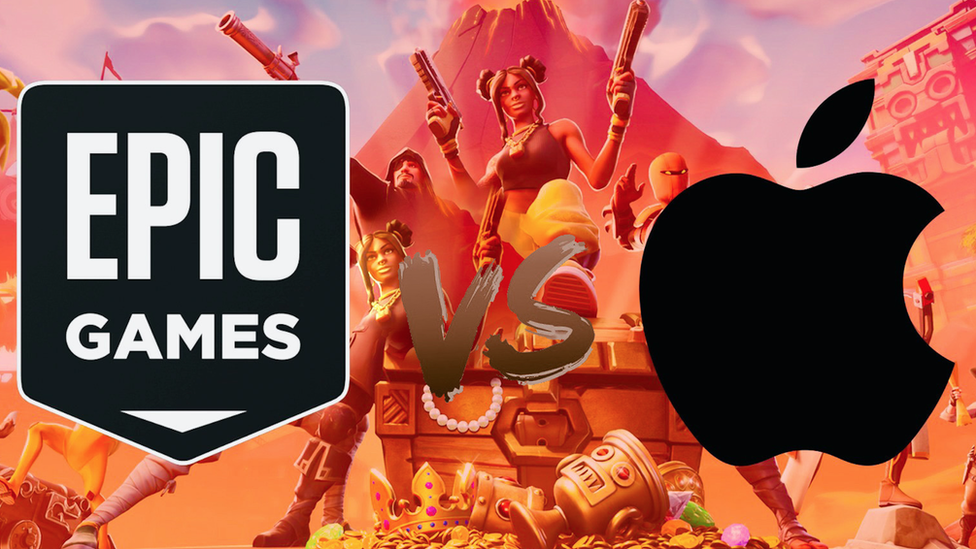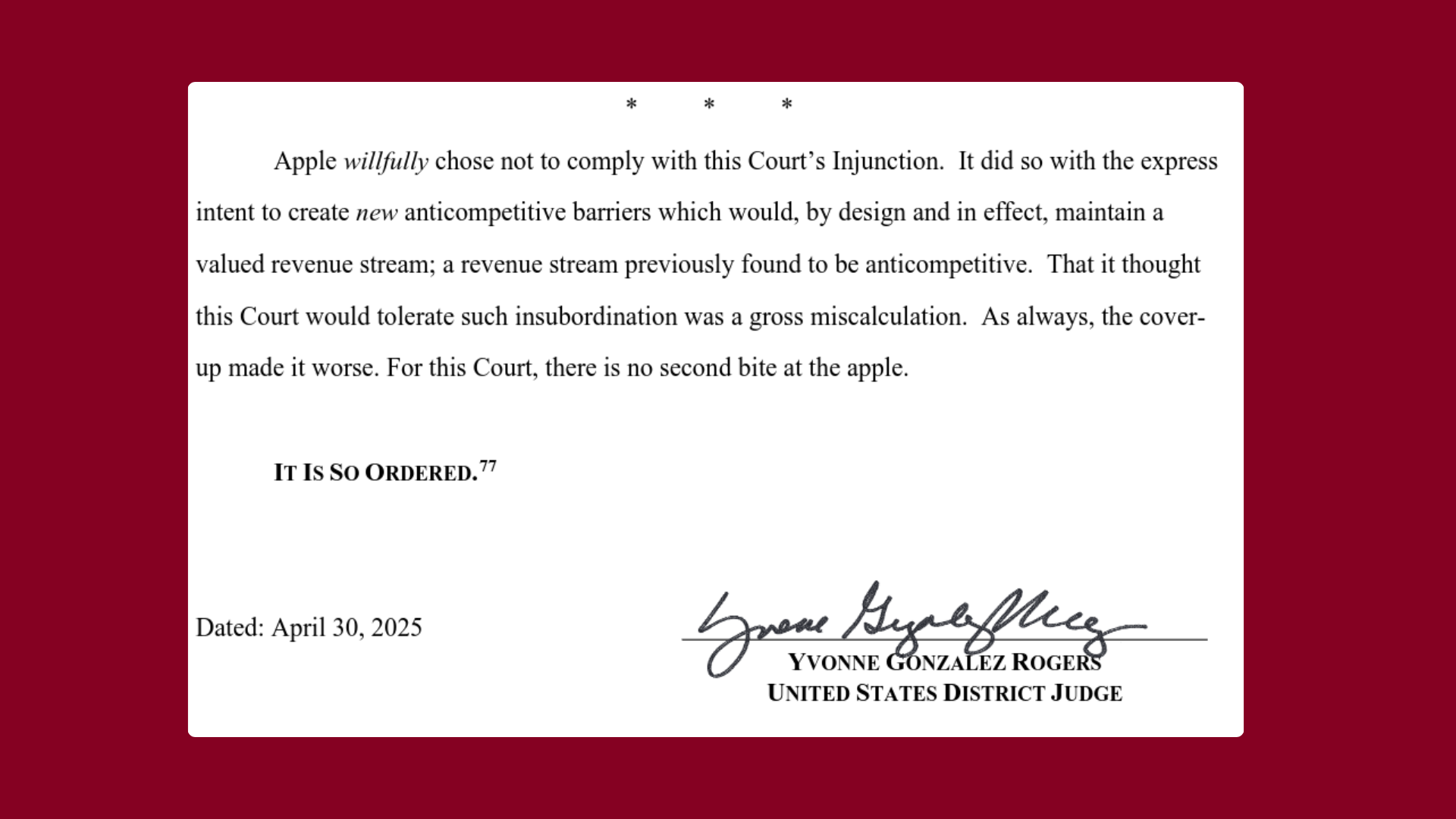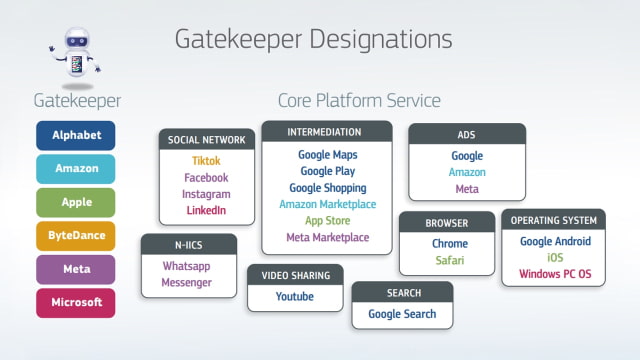🚨 WHEN TITANS CLASH:
A LEGAL BATTLE THAT SHOOK THE TECH WORLD
The tech industry has witnessed many courtroom battles, but few have captured public attention like the Apple vs. Epic Games saga. What began as a simple dispute over in-app purchases evolved into a global legal confrontation questioning Apple’s grip on the digital marketplace. With both companies holding massive influence in their respective domains—Apple as a gatekeeper of mobile experiences and Epic as a leader in interactive entertainment—the stakes couldn’t have been higher. What followed was a legal rollercoaster that has set the tone for how platform holders and developers interact in the future.
🕰️ APPLE AND IBM:
A HISTORICAL ECHO OF MONOPOLY CONCERNS
Apple’s legal troubles have drawn clear comparisons to the U.S. government’s legendary antitrust case against IBM in the 1960s and 1970s. IBM, accused of dominating the mainframe computer market, was the poster child of unchecked corporate power. Though the case was ultimately dropped, it forced IBM to become more transparent and opened the door for competitors like Microsoft and Apple itself. Today, critics argue that Apple, once the underdog, has become the new monopolist by locking users and developers into a tightly controlled ecosystem. The irony is palpable: the company that once defied the status quo is now defending it.
-IBM as monopoly
Apple’s legal troubles have drawn clear comparisons to the U.S. government’s legendary antitrust case against IBM in the 1960s and 1970s. IBM, accused of dominating the mainframe computer market, was the poster child of unchecked corporate power. Though the case was ultimately dropped, it forced IBM to become more transparent and opened the door for competitors like Microsoft and Apple itself. Today, critics argue that Apple, once the underdog, has become the new monopolist by locking users and developers into a tightly controlled ecosystem. The irony is palpable: the company that once defied the status quo is now defending it.
Apple’s legal troubles have drawn clear comparisons to the U.S. government’s legendary antitrust case against IBM in the 1960s and 1970s. IBM, accused of dominating the mainframe computer market, was the poster child of unchecked corporate power. Though the case was ultimately dropped, it forced IBM to become more transparent and opened the door for competitors like Microsoft and Apple itself. Today, critics argue that Apple, once the underdog, has become the new monopolist by locking users and developers into a tightly controlled ecosystem. The irony is palpable: the company that once defied the status quo is now defending it.

IBM became a monopoly by Apple’s criticism
Apple became a monopoly by Epic Game’s criticism
🎮 EPIC’S BOLD STRIKE AGAINST THE APP STORE WALL
In August 2020, Epic Games triggered a calculated confrontation. By sneaking in a direct payment system within Fortnite’s iOS version, it knowingly broke Apple’s rules, anticipating the app’s removal and having a lawsuit ready to file. The move was theatrical, complete with a parody of Apple’s iconic “1984” ad to symbolize its rebellion. This was not just a developer revolt; it was a well-staged declaration of war on Apple’s digital economy. Epic argued that Apple’s control over app distribution and payments on iOS devices amounted to anti-competitive behavior that hurt both developers and consumers.
⚖️ INSIDE THE COURTROOM:
APPLE VS. EPIC GOES TO TRIAL
The trial in California during 2021 was one of the most closely watched legal proceedings in tech history. With a parade of witnesses including Apple CEO Tim Cook and Epic CEO Tim Sweeney, the trial delved deep into the business mechanics of the App Store. Emails, memos, and presentations were scrutinized as the court examined whether Apple’s practices unfairly blocked competition. Apple emphasized its focus on privacy and security, while Epic highlighted the burdensome fees and lack of options for developers.
A dramatic moment came when Judge Yvonne Gonzalez Rogers grilled Tim Cook, pressing him on why Apple prevents users from knowing about cheaper alternatives outside the App Store. Her remark, “The lack of competition is troubling,” set the tone for what would follow.
⚖️ THE MIXED VERDICT THAT LEFT EVERYONE TALKING
Judge Yvonne Gonzalez Rogers issued a nuanced decision in September 2021. While she ruled that Apple must allow app developers to inform users of alternative payment methods, she also concluded that Apple was not operating an illegal monopoly under U.S. antitrust law. It was a split decision that satisfied neither party. Epic viewed it as insufficient, while Apple celebrated it as a validation of its business model. Both companies filed appeals, signaling that the fight was far from over.
Crucially, the court said Epic couldn’t have a “second bite at the apple” — a metaphor indicating that Epic would not be allowed to relitigate aspects of the case it had already lost. This prevented Epic from pursuing a new trial on certain monopoly claims, despite its efforts to keep pressing the issue in different legal forms.
🏛️ SUPREME COURT SILENCE & DOJ THUNDER
In January 2024, the U.S. Supreme Court declined to hear appeals from both sides, effectively upholding the lower court’s verdict. But the pressure on Apple didn’t ease. In March 2024, the U.S. Department of Justice filed its own landmark antitrust case against Apple. The DOJ accused Apple of using its iOS platform dominance to suppress competition in various markets, from digital wallets to wearables and messaging. This new legal front could have even broader implications for Apple’s future than the Epic case.
🌍 WORLDWIDE REPERCUSSIONS: THE GLOBAL PUSHBACK
Apple’s practices haven’t only faced scrutiny in the U.S. Governments worldwide are taking action. The European Union, through the Digital Markets Act (DMA), has introduced sweeping regulations targeting so-called “gatekeepers” like Apple. These rules require Apple to allow third-party app stores and sideloading on iOS devices. Similar legislative and regulatory moves are happening in Japan, South Korea, and India. The international consensus is growing: Apple must open up or face increasing legal and economic pressure.
🛡️ APPLE’S JUSTIFICATION: SAFETY OVER PROFIT?
Apple maintains that its ecosystem offers users unparalleled privacy, security, and performance. The company argues that by tightly controlling the App Store, it can ensure users are protected from scams, malware, and harmful content. Apple has warned that allowing third-party stores or alternative payment systems could endanger users and reduce the overall quality of the iOS experience. Yet critics argue these concerns are overstated, and that Apple’s true motive is profit and control—maintaining a lucrative toll booth on the mobile internet.
🎯 EPIC’S CRUSADE FOR FAIRNESS IN THE DIGITAL ECONOMY
Epic Games has painted itself as the defender of fairness in digital commerce. It argues that developers should be free to choose how they distribute apps and monetize their creations. The company has also taken similar stances against Google, which runs the Play Store on Android. Epic’s campaign has sparked greater awareness among both consumers and policymakers about the risks of platform monopolies. It is also pushing for industry-wide changes that would favor open ecosystems and more developer-friendly policies.
🔍 WHAT’S REALLY AT STAKE HERE?
This isn’t just a squabble between two tech giants—it’s a referendum on digital power structures. The Apple vs. Epic saga symbolizes the growing tension between innovation and regulation, between control and openness. If Apple’s model is allowed to stand unchallenged, it may set a precedent for other tech giants to enforce similarly rigid ecosystems. On the other hand, a victory for Epic and regulators could reshape how software is distributed globally, potentially leading to more choice, lower costs, and greater innovation.
🧠 FINAL THOUGHTS: THE MONOPOLY WAR ISN’T OVER YET
Although the courtroom battles have reached some conclusions, the war over digital dominance continues to unfold across courts, boardrooms, and regulatory bodies worldwide. Apple may have dodged a bullet with the Epic ruling, but the DOJ case and global legislation pose ongoing threats. Whether this pressure will lead Apple to reform its practices or dig in deeper remains uncertain. What’s undeniable is that the Apple vs. Epic case has sparked a global conversation about tech monopolies, user rights, and the very fabric of the digital economy. This is just the beginning.
(Click notification ![]() for more updates)
for more updates)
By: V.Harishram
''Stay true, bring facts to you''

